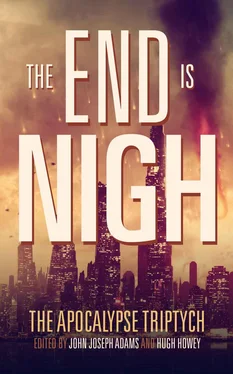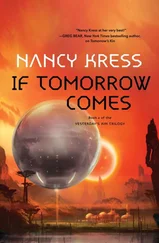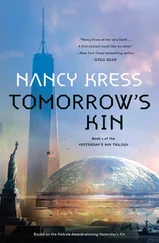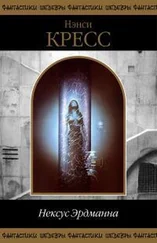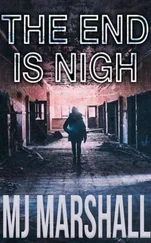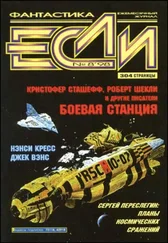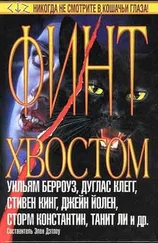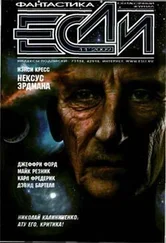“What are you talking about?” She doesn’t sound crazy, but her clarity is frightening because I don’t understand it.
“You said it yourself, Em. You said, ‘I love you.’ You were just told that your life was over. Goodbye citizen, in six months you will be dead. And the only thing that mattered to you was telling me that you loved me.” She takes my hand. “Don’t you get it? I love you, too. With all my heart. With all my life . All I want is for us to be together. Fuck this asteroid. Fuck the lottery. Let’s just get married and be happy for whatever time we have left.”
There are tears in her eyes and I know they are tears of joy. How can they be tears of joy?
“It doesn’t matter how long my life is,” she says. “I just want to end it with you as my wife.”
She looks directly into my eyes. And I understand.
• • • •
It took us a long time to get to the Davis Mountains in West Texas, but we made it. It is cold, but the sky is clear. My mom is there. Lynn’s parents won the lottery, and we are happy for them even if they have to miss our wedding. Dad’s girlfriend won the lottery, too, and after a quickie wedding before it was made illegal, dad stopped returning my calls. It’s for the best. Lynn’s friend Max is officiating. He’s a Baptist minister, and I rather think that a lesbian wedding is on his bucket list, but I’m not crass enough to ask him.
Lynn is resplendent in her dress. My mom cries as she walks me up an aisle of wild grass and stone. She hugs Lynn very tight and then kisses me. Lynn and I say our vows; we exchange rings; and Max declares us married. We kiss, and I can’t help but cry.
“I’m so sorry,” I whisper, and Lynn shakes her head.
“No, no no. Don’t be. I wanted to live the rest of my life with you as my wife.” She touches my cheek with her hand. “Now I will, and I’m so incredibly grateful.”
I pull my wife close. Our cheeks touch, and I am grateful, too.
There is only one other guest at the wedding. The sky is dominated by a streaking ball of fire that looks nothing like the ugly rock I saw on TV. Today it looks glorious, a celestial benediction that couldn’t be more beautiful.
ABOUT THE AUTHOR
Jake Kerr began writing short fiction in 2010 after fifteen years as a music and radio industry columnist and journalist. His first published story, “The Old Equations,” appeared in Lightspeed and went on to be named a finalist for the Nebula Award and the Theodore Sturgeon Memorial Award. He has subsequently been published in Fireside Magazine , Escape Pod , and the Unidentified Funny Objects anthology of humorous SF. A graduate of Kenyon College with degrees in English and Psychology, Kerr studied under writer-in-residence Ursula K. Le Guin and Peruvian playwright Alonso Alegria. He lives in Dallas, Texas, with his wife and three daughters.
Tananarive Due — REMOVAL ORDER
Tiny black dots speckled Nayima’s white-socked feet as she shuffled across the threadbare carpet in her grandmother’s living room. Gram’s four cats were gone, but the fleas had stayed behind. Nayima had learned to ignore the itching, but the sight of so many fleas made her sick to her stomach. The flea problem had seemed small compared to Nayima’s daily ever-growing list of responsibilities, but she would not keep her Gram in filth.
“Shit,” Nayima said to the empty living room, the fleas, and the slow, steady whistling of Gram’s sleep-breathing in the next room.
Gray morning light beckoned her. Nayima flung the front door open and sat on the stoop, breathing fast to try to beat the nausea, which felt too much like death. Fledgling panic gnawed the rim of her stomach. She could make out the headline of the bright electric pink flyer Bob the groundskeeper had dutifully posted on the community bulletin board across the green belt from Gram’s house: REPORT TO THE NEAREST HOSPITAL IF… and the litany of symptoms. Stomachache was high on the list, beneath persistent headache and double vision.
That had been a month ago. Bob was gone, and the hospital’s doors were chained. Even the bright flyer was nearly obscured in the gray-brown haze that had settled over her neighborhood like a sepia camera filter. The San Gabriel mountain range that stood a few blocks from Foothill Park was nearly hidden beneath a sheet of brown clouds. Sunlight bled through the sky in a fuzzy ball, but less light than yesterday. So much for Southern California sunshine. Nayima had gotten used to the smell, the eye and sinus irritation, the coughing at bedtime, but she hated the way the smoke had changed the daylight. Each morning she hoped the day would be a bit clearer and brighter, but the sky was always a little worse than before, like eyesight slowly going dim.
But she could manage the flea problem. That she could do.
The irony wasn’t lost on her: she had only remained because she didn’t want to move Gram. Now she would have to move Gram after all, without the help of neighbors, soldiers or police officers. The infestation was too far gone for insecticides—and she’d already emptied a can, making it harder to breathe in the house. Gram had taught her how hard fleas were to kill, with her menagerie of pets in the house Nayima had been raised in since she was four. Nayima had felt like just another of Gram’s adopted creatures.
The street spread before Nayima with its alien coloring and emptiness, her neighbors’ windows dark and sleeping. Most of the driveways were clear except for a few vandalized cars left behind. The week before, a daytime marauder had come through on a loud motorcycle, raising a racket and tossing clothes into the trees. Kids, she guessed, but she’d stayed out of sight, so she wasn’t sure. A long-sleeved shirt and ratty blue jeans still hung from high fronds in the neat row of palm trees in front of the green belt.
Nayima used to walk her neighborhood for exercise, rounding the green belt and pool area, the basketball court, the rows of stucco exteriors in carefully matched paint. This day she scouted for a new home—testing the door-knobs, sniffing the air inside, assessing the space. She had visited them all before. Most had been damaged beyond usefulness by looters.
She chose the house on the opposite corner from Gram for its proximity and the bright yellow roses blooming in front, lovely and clueless. Mr. Yamamoto’s house. Inside, its Spartan decor had given looters little to muss, although broken glass glittered in the kitchen. But the house had double doors large enough to push Gram’s bed through. The lock was intact. No windows broken. No terrible odors. No carpeting to hide nests of biting fleas.
Sanctuary.
“Thank you, Mr. Yamamoto,” she said.
Mr. Yamamoto had offered to drive her and Gram to the high desert in the back of his SUV, though she’d seen relief flicker in his hollowed eyes when she’d refused. He’d had a carload already, with his daughter and grandchildren from Rancho. Instead, he had given her a box of spices, most of them characteristically useless: every Halloween, he’d handed out clementine oranges instead of candy. Before Gram got sick, she and Mr. Yamamoto had walked their dogs together. Like Gram, he was retired. Like everyone, he had left most of his belongings behind.
Gram’s old digital wristwatch told her it was 7:30 in the morning. From the dark sky, it could be evening. The day had already wearied her, and the hard part had not yet begun.
Gram was asleep. She lay slanted on her side where Nayima had left her at 4 a.m., after her careful ritualistic padding of pillows to keep her from slumping on to her back. Studying Gram’s quiet face, Nayima marveled again at how the cancer had stolen the fat from her cheeks, shrinking her grandmother to a smaller husk each day.
Читать дальше
